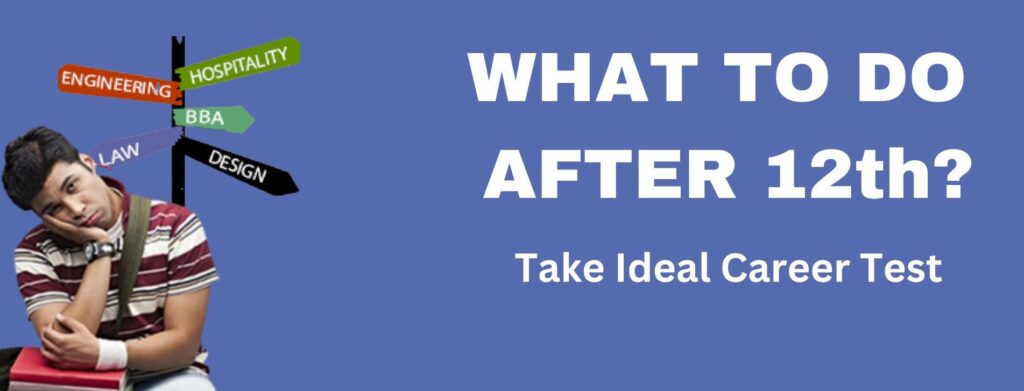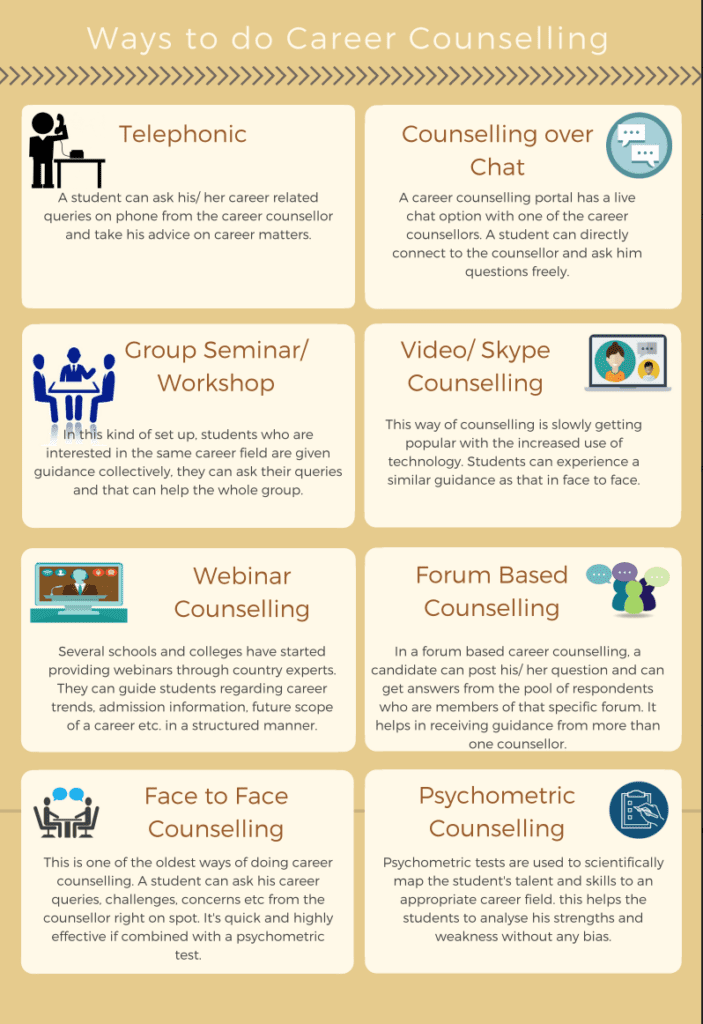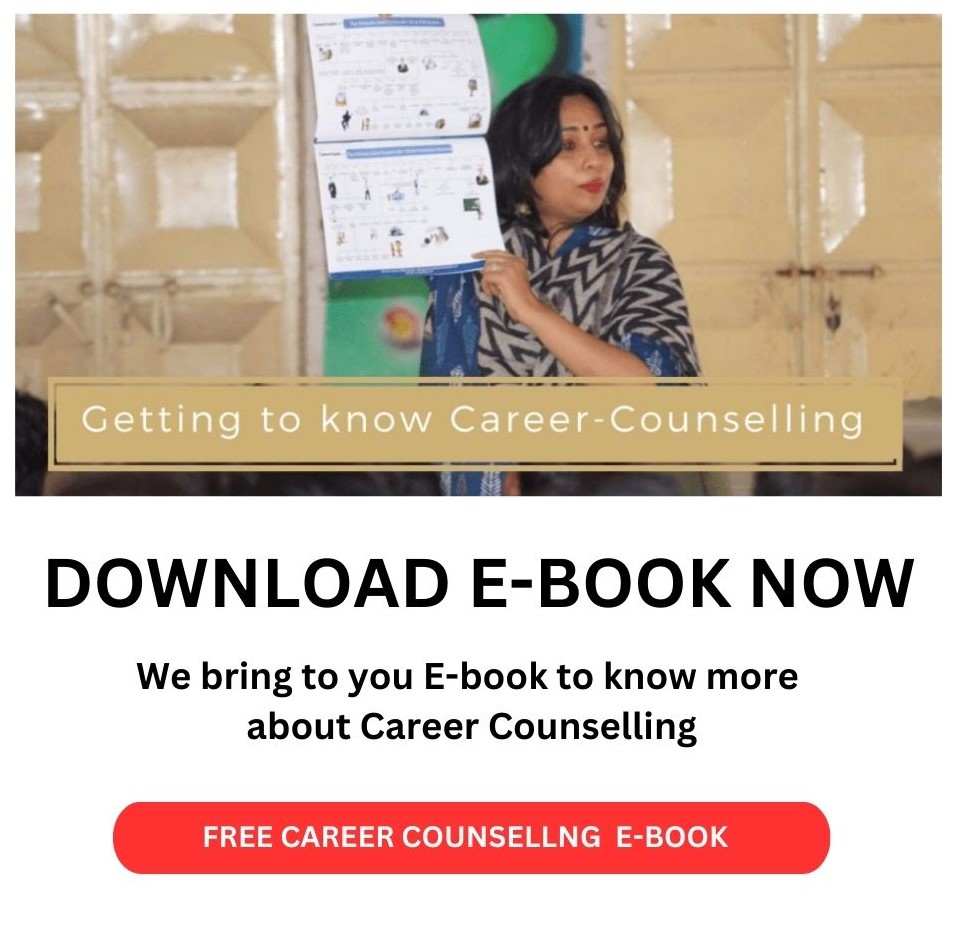Career counselling after class 12th plays a crucial role in deciding the career goals you’ll choose. It will help you understand the favourable path to a successful career. Usually, after the Class 12th, we tend to feel sceptical and confused regarding what option we go for. Nevertheless, career counselling plays a role in your decision-making process. It will govern you in ways to go for a desirable career. Counselling will broaden your options and make you aware of the scope of your domain. But, make sure you learn to make wise choices so that you don’t regret it. Career counselling after class 12th can help you mould your decisions into something constructive.
Career Counselling After Class 12th
psychometric tests analyse your intuitive capabilities and plans to pursue the same. Let us read the following article and know more about career counselling after class 12th. Why opt for career counselling after the 12th? In the era of cut-throat competition, choosing a career after class 12th can be indeed challenging. When in doubt, opt for career counselling. Don’t let your dilemmas get in the way of your career choices. It is mindful to consult with the expert before you choose to follow a final choice.
Higher Education
Pursuing further education is a common choice after Class 12th. You can consider undergraduate programs in various fields like career as engineering, medicine, law, commerce, arts, science, or management. Research the entrance exams, eligibility criteria, and admission processes for the specific courses you are interested in.
- Engineering :- Engineering is a broad field that encompasses a wide range of disciplines, including civil engineering, electrical engineering, mechanical engineering, and computer engineering. Engineers design, build, and maintain infrastructure, machines, and systems.
- Medicine :- Medicine is another popular field that offers a variety of career options, including doctors, nurses, and pharmacists. Doctors diagnose and treat patients, nurses provide care to patients, and pharmacists dispense medications.
- Business :- Business is a large and diverse field that includes a variety of careers, such as accounting, marketing, and finance. Business professionals work in a variety of industries, including healthcare, technology, and manufacturing.
- Law :- Law is a field that deals with the legal system and the rights of individuals and businesses. Lawyers represent clients in court, draft legal documents, and provide legal advice.
- Education :- Education is a field that prepares students for their future careers. Teachers work in elementary schools, middle schools, high schools, and colleges. They teach a variety of subjects, such as math, science, English, and history.
Professional Courses
Apart from traditional degree programs, you can opt for professional courses that provide specialized training in specific fields. Examples include courses in graphic design, web development, animation, digital marketing, hospitality management, fashion designing, photography, event management, and so on.
- Graphic design :- Graphic designers create visual content, such as logos, illustrations, and websites. They use software programs to create their designs and must have strong artistic and technical skills.
- Web development :- Web developers create and maintain websites. They use programming languages to create the code that makes websites work and must have strong problem-solving and analytical skills.
- Digital marketing :- Digital marketers use online channels to promote products and services. They develop and execute marketing campaigns, track results, and measure ROI.
- Hospitality management :- Hospitality managers oversee the operations of hotels, restaurants, and other hospitality businesses. They are responsible for hiring and managing staff, creating and executing marketing plans, and ensuring that guests have a positive experience.
- Fashion designing :- Fashion designers create clothing, accessories, and other fashion items. They must have strong artistic and technical skills, as well as an understanding of trends and fashion history.
- Event management :- Event managers plan and execute events, such as weddings, conferences, and concerts. They are responsible for coordinating all aspects of the event, from booking vendors to managing logistics.
Government Exams
If you aspire to work in the government sector, there are several competitive exams you can prepare for, such as the Civil Services Examination (UPSC), Staff Selection Commission (SSC) exams, Banking exams (IBPS, SBI), State Public Service Commission exams, and more. These exams offer a wide range of job opportunities in administrative services, defense services, banking, and other sectors.
- Civil Services Examination (UPSC) :- The Civil Services Examination is one of the most prestigious exams in India. It is conducted by the Union Public Service Commission (UPSC) to recruit officers for the Indian Administrative Service (IAS), Indian Police Service (IPS), and other Group A and B services. The exam is very competitive and only a small percentage of candidates are selected.
- Staff Selection Commission (SSC) exams :- The Staff Selection Commission (SSC) conducts a number of exams to recruit employees for various government jobs. These exams include the Combined Graduate Level Examination (CGL), Combined Matriculation Level Examination (CML), and Statistical Investigators Grade-II Examination. The SSC exams are also very competitive and only a small percentage of candidates are selected.
- Banking exams (IBPS, SBI) :- The Indian Bank’s Personnel Selection (IBPS) and State Bank of India (SBI) conduct a number of exams to recruit employees for various banking jobs. These exams include the IBPS PO Exam, IBPS Clerk Exam, and SBI PO Exam. The banking exams are also very competitive and only a small percentage of candidates are selected.
- State Public Service Commission (SPSC) exams :- Each state in India has its own Public Service Commission (PSC) that conducts exams to recruit employees for various state government jobs. The SPSC exams are also very competitive and only a small percentage of candidates are selected.
Skill-based Training
If you have a specific skill or talent, you can consider pursuing vocational or skill-based training. For example, you can enroll in courses for animation, interior designing, culinary arts, music, dance, sports coaching, fitness training, or professional certifications in fields like digital marketing, project management, cybersecurity, etc.
- Interior Designing :- Interior designers create the look and feel of a space, from homes and offices to restaurants and hotels. They work with clients to understand their needs and then design spaces that are both stylish and functional. Interior designers must have a strong eye for design, as well as knowledge of construction and materials.
- Culinary Arts :- Culinary artists are responsible for creating delicious and beautiful food. They work in a variety of settings, from restaurants to hotels to catering companies. Culinary artists must have a passion for food, as well as strong cooking skills. They must also be able to work well under pressure and meet deadlines.
- Sports Coaching :- Sports coaches train athletes to compete at their highest level. They work with athletes of all ages and skill levels, from beginners to professional athletes. Sports coaches must have a passion for sports, as well as knowledge of the sport they are coaching. They must also be able to motivate and inspire athletes to reach their full potential.
- Fitness Training :- Fitness trainers help people get in shape and reach their fitness goals. They work with clients of all ages and fitness levels, from beginners to experienced athletes. Fitness trainers must have a passion for fitness, as well as knowledge of exercise science. They must also be able to motivate and inspire clients to stick to their fitness goals.
Entrepreneurship
Entrepreneurship is the process of starting a business, or an organization, and taking on greater than normal financial risks in order to do so. The people who create these businesses are called entrepreneurs. The process of entrepreneurship entails identifying opportunities and assembling the resources necessary to capitalize on them.
Entrepreneurs are driven by the desire to be their own boss and to create something new. They are also motivated by the potential for financial rewards. Entrepreneurship can be a risky endeavor, but it can also be very rewarding. Successful entrepreneurs can earn a lot of money and have a great deal of freedom.
Gap Year and Internships
A gap year is a period of time between high school and college or university during which a student takes a break from formal education. Gap years can be used for a variety of purposes, such as travel, volunteering, working, or simply taking some time to relax and reflect.
Internships are work experiences that provide students with the opportunity to gain practical experience in a particular field. Internships can be unpaid or paid, and they can be full-time or part-time. Internships can be a great way to gain valuable experience, learn new skills, and make connections in your field of interest.
Here are some of the benefits of taking a gap year and doing internships :-
- Gain valuable experience :- Internships and gap years can give you valuable experience in your chosen field. This experience can help you stand out to potential employers when you start applying for jobs after college.
- Learn new skills :- Internships and gap years can also help you learn new skills. These skills can be valuable in your future career, or they can simply make you a more well-rounded person.
- Make connections :- Internships and gap years can help you make connections with people in your field. These connections can be helpful when you start applying for jobs after college.
- Explore your interests :- A gap year can be a great time to explore your interests and figure out what you want to do with your life. You can travel, volunteer, or work in a variety of different fields to see what you’re passionate about.
FAQs About Career Counselling After Class 12th
Q. What is career counseling?
A. Career counseling is a process of helping individuals explore, evaluate, and make informed decisions about their career paths. It involves assessing their interests, skills, values, and personality traits to guide them towards suitable career options.
Q. What is career counseling after Class 12th?
A. Career counseling after Class 12th is a service provided to students who have completed their 12th grade or equivalent education. It involves assisting students in making informed decisions about their career paths, exploring different options, and understanding the requirements and opportunities in various fields.
Q. Why is career counseling important after Class 12th?
A. Career counseling after Class 12th is crucial because it helps students identify their interests, strengths, and aspirations. It provides guidance on choosing the right career path based on individual preferences and aptitudes. It also helps students explore various educational and vocational options, understand the job market, and make well-informed decisions about their future.
Q. How much does career counseling after Class 12th cost?
A. The cost of career counseling after Class 12th can vary depending on various factors such as the counselor’s experience, location, and the extent of services provided. Some counselors may charge an hourly rate, while others may offer packages or session-based fees. It is best to inquire about the cost upfront before engaging in career counseling services.
Ideal Career Test
A thorough evaluation tool called the Ideal Career Test was created to help people choose careers that match their interests, aptitudes, values, and personality qualities. This test seeks to help people make educated judgements about their career choices by offering insightful information about the kinds of jobs and work environments that would be a suitable fit for them.
The test begins by evaluating an individual’s interests and passions. It explores their preferences for various activities, hobbies, and subjects. This assessment helps identify areas that genuinely captivate the individual and can guide them towards career paths that align with their personal interests.
The assessment also evaluates an individual’s skills and aptitudes. It explores their strengths in different areas such as problem-solving, communication, creativity, leadership, and technical abilities. By understanding their skill set, individuals can identify careers that allow them to leverage their natural talents and develop their potential.
Personality factors have a significant role in the evaluation as well. The test investigates a person’s personality traits, including agreeableness, conscientiousness, emotional stability, openness to new experiences, and extroversion/introversion. People can find employment that suit their temperament and work methods, as well as jobs that offer a supportive atmosphere for personal development and professional satisfaction, by taking into account their personality profile.
















